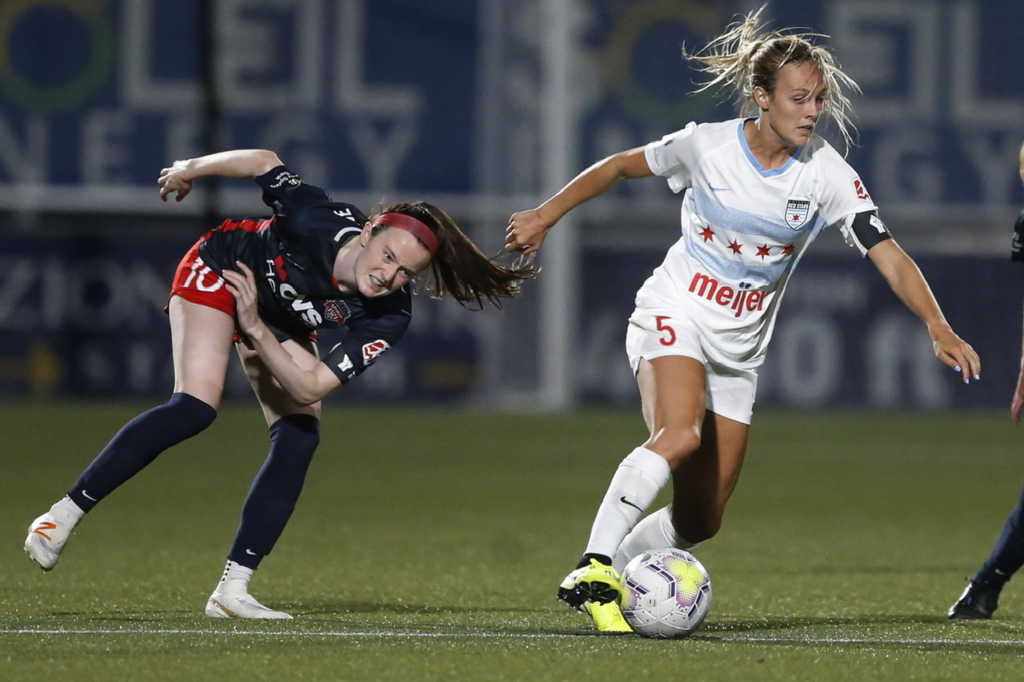While the overwhelming majority of her fellow teammates were on bended knee during the national anthem, Chicago Red Stars player Rachel Hill stood with her hand over her heart.
Hill, who explained her decision in a recent social media post, said her decision to stand for “The Star-Spangled Banner” ahead of a National Women’s Soccer League “did not come easily or without profound thought.”
The young athlete, who was wearing a Black Lives Matter T-shirt, said she ultimately decided to stand because of what the anthem means to her, her family, and military heroes around the country.
“When I stood for the national anthem before the Chicago Red Stars’ most recent game, this was a decision that did not come easily or without profound thought,” Hill wrote. “Before the game, I was completely torn on what to do. I spoke with friends, family, and teammates — of all races, religions, and backgrounds — with the hope of guidance. I chose to stand because of what the flag inherently means to my military family members and me, but I 100% support my peers.”
Hill added that she supports the cause of the Black Lives Matter movement and is doing her “part in fighting against the currently inequality.”
“As a white athlete,” she continued, “it is way past due for me to be diligently anti-racist. … In this moment, the black community needs us. I am ready to help with meaningful action that leads to everlasting change. Do I have all the answers to this? No. But we must start somewhere, and that’s my intent.”
People who saw the photos of Hill standing during the national anthem immediately began trashing the soccer player. Some called her a “dumb white b****.” Another person wrote, “You can either choose to be the Julie Ertz in life or the Rachel Hill. Choose Julie.” Ertz was kneeling alongside Hill’s teammate Casey Short.
As she was standing for “The Star-Spangled Banner,” Hill put her hand on the shoulder of Short, who was kneeling.
Short defended Hill in a post of her own, describing her conversations with Hill as “unapologetically authentic.”
“I have to ask where my hope lies,” Short continued. “It lies in my faith and those types of conversations that have been long overdue. The types of conversations that are raw and uncomfortable, that can lead to real impactful change.”



